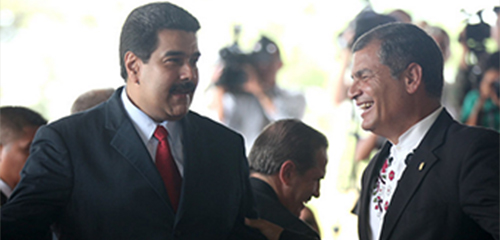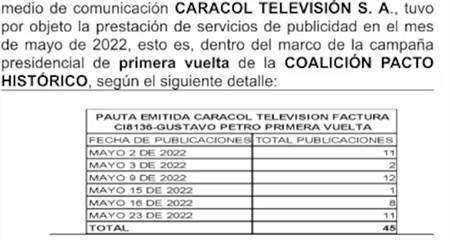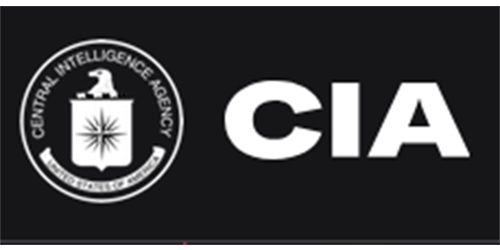| Tweet |
Treasury Targets Venezuelan Officials Aligned with Nicolas Maduro in Response to Electoral Fraud

Venezuela, once one of Latin America’s most prosperous nations, now stands at the center of international scrutiny. Under the authoritarian leadership of Nicolás Maduro, the country has seen an unprecedented erosion of democratic values and human rights. Amid electoral fraud, repression, and corruption, the United States has ramped up sanctions against Venezuelan officials aligned with Maduro’s regime.
These individuals have been accused of manipulating the National Electoral Council (CNE) and the Supreme Tribunal of Justice (TSJ) to consolidate Maduro’s hold on power. They have used their positions to oppress political opposition, limit free speech, and carry out arbitrary arrests—all tactics aimed at silencing dissent and securing Maduro’s illegitimate rule.
As a judge in the TSJ’s Constitutional Chamber, Figueroa has been instrumental in supporting fraudulent electoral claims. His participation in the TSJ’s expert technical review at the CNE helped validate Maduro’s victory in the latest contested election.
The president of the TSJ’s Political-Administrative Chamber since 2022, Gil has obstructed democratic processes by disqualifying prominent opposition figures like Maria Corina Machado from running in the election. In 2018, Canada sanctioned Gil for corruption and human rights violations.
Serving as president of the CNE’s Civil and Electoral Registry Commission, Gil Pacheco has played a critical role in manipulating voter registration and obstructing the release of transparent election results. Her actions were pivotal in declaring Maduro the winner despite credible allegations of widespread voter fraud.
A special judge in the Maduro-aligned judiciary, Briceño issued an arrest warrant for opposition presidential candidate Edmundo Gonzalez Urrutia shortly after the election results were announced. Gonzalez was forced into exile in Spain as a result.
One of the most egregious examples of repression following the election was the arrest warrant issued for Edmundo Gonzalez Urrutia. Gonzalez, who garnered significant support as a presidential candidate, was forced to flee Venezuela after facing baseless charges of conspiracy and sabotage. This incident exemplifies the Maduro regime’s strategy of using legal institutions to suppress political rivals.
Since the initial sanctions were imposed, nearly 2,000 individuals connected to the Maduro regime have faced visa restrictions. These measures are not limited to Venezuelan officials but extend to those who engage in acts of corruption and human rights violations.
Furthermore, U.S. persons are generally prohibited from conducting transactions with the sanctioned individuals or entities. Violations of these sanctions can result in significant civil and criminal penalties. These sanctions send a clear message to Maduro and his inner circle: the U.S. will continue to exert pressure until Venezuela returns to democratic governance.
The international community, led by the U.S., hopes that these sanctions will weaken Maduro’s regime and create the conditions for a democratic transition. However, the path to restoring democracy in Venezuela remains fraught with challenges.
The U.S. Treasury’s sanctions against Maduro-aligned officials mark another chapter in Venezuela’s ongoing political crisis. While these measures are aimed at holding those responsible for electoral fraud and human rights abuses accountable, the future of Venezuela remains uncertain. The international community’s role in supporting the democratic aspirations of the Venezuelan people is more crucial than ever.
As Venezuela’s political situation continues to evolve, the world watches closely. The U.S. remains committed to using all available tools to pressure Maduro’s regime and support the restoration of democracy. However, the ultimate success of these efforts depends on both domestic opposition and the willingness of the international community to maintain pressure on Maduro and his allies.
Foto: Presidencia de Ecuador.
The Role of the U.S. Treasury in Sanctions
TheU.S. Department of the Treasury’s Office of Foreign Assets Control (OFAC) has long been at the forefront of sanctioning Venezuelan officials who are responsible for undermining democratic processes. On [date], OFAC announced its most recent wave of sanctions, targeting 16 key figures who have played pivotal roles in obstructing free and fair elections.These individuals have been accused of manipulating the National Electoral Council (CNE) and the Supreme Tribunal of Justice (TSJ) to consolidate Maduro’s hold on power. They have used their positions to oppress political opposition, limit free speech, and carry out arbitrary arrests—all tactics aimed at silencing dissent and securing Maduro’s illegitimate rule.
Key Figures Sanctioned
The sanctions focus on a wide range of individuals from various sectors, including the judiciary, military, and government officials. Below are some of the most prominent figures targeted by the U.S. Treasury:1. Inocencio Antonio Figueroa Arizaleta
As a judge in the TSJ’s Constitutional Chamber, Figueroa has been instrumental in supporting fraudulent electoral claims. His participation in the TSJ’s expert technical review at the CNE helped validate Maduro’s victory in the latest contested election.
2. Malaquías Gil Rodríguez
The president of the TSJ’s Political-Administrative Chamber since 2022, Gil has obstructed democratic processes by disqualifying prominent opposition figures like Maria Corina Machado from running in the election. In 2018, Canada sanctioned Gil for corruption and human rights violations.
3. Rosalba Gil Pacheco
Serving as president of the CNE’s Civil and Electoral Registry Commission, Gil Pacheco has played a critical role in manipulating voter registration and obstructing the release of transparent election results. Her actions were pivotal in declaring Maduro the winner despite credible allegations of widespread voter fraud.
4. Edward Miguel Briceño Cisneros
A special judge in the Maduro-aligned judiciary, Briceño issued an arrest warrant for opposition presidential candidate Edmundo Gonzalez Urrutia shortly after the election results were announced. Gonzalez was forced into exile in Spain as a result.
Electoral Fraud and Repression
The most recent election in Venezuela has been widely criticized for its lack of transparency and fairness. According to multiple international observers, the process was marred by irregularities, including voter suppression, disqualification of opposition candidates, and manipulation of voting results. The Maduro-aligned officials named in the sanctions are accused of orchestrating these illegal activities to secure Maduro’s victory.One of the most egregious examples of repression following the election was the arrest warrant issued for Edmundo Gonzalez Urrutia. Gonzalez, who garnered significant support as a presidential candidate, was forced to flee Venezuela after facing baseless charges of conspiracy and sabotage. This incident exemplifies the Maduro regime’s strategy of using legal institutions to suppress political rivals.
U.S. Visa Restrictions and International Sanctions
In addition to the Treasury’s sanctions, the U.S. Department of State imposed new visa restrictions on Maduro-aligned officials under Presidential Proclamation 9931. These restrictions are part of a broader effort to hold Venezuelan officials accountable for their role in undermining democracy and repressing civil rights.Since the initial sanctions were imposed, nearly 2,000 individuals connected to the Maduro regime have faced visa restrictions. These measures are not limited to Venezuelan officials but extend to those who engage in acts of corruption and human rights violations.
Previous Sanctions
The latest sanctions build upon a long history of U.S. actions targeting Venezuelan officials. To date, over 140 individuals and 100 entities have been sanctioned, including high-profile figures such as Nicolás Maduro, his wife Cilia Flores, and key military and intelligence leaders.Implications of the Sanctions
These sanctions have far-reaching consequences. Under OFAC’s regulations, all property and interests in property owned by the sanctioned individuals that are located in the U.S. or under U.S. control are frozen. This also applies to any entities in which the sanctioned individuals have a 50% or greater ownership stake.Furthermore, U.S. persons are generally prohibited from conducting transactions with the sanctioned individuals or entities. Violations of these sanctions can result in significant civil and criminal penalties. These sanctions send a clear message to Maduro and his inner circle: the U.S. will continue to exert pressure until Venezuela returns to democratic governance.
The Broader Impact on Venezuelan Society
The sanctions, while aimed at Maduro and his cronies, have had a ripple effect throughout Venezuelan society. The country is already grappling with hyperinflation, widespread poverty, and a crumbling healthcare system. The actions of the sanctioned officials have only exacerbated the suffering of ordinary Venezuelans, as resources are diverted to maintain Maduro’s grip on power.The international community, led by the U.S., hopes that these sanctions will weaken Maduro’s regime and create the conditions for a democratic transition. However, the path to restoring democracy in Venezuela remains fraught with challenges.
The U.S. Treasury’s sanctions against Maduro-aligned officials mark another chapter in Venezuela’s ongoing political crisis. While these measures are aimed at holding those responsible for electoral fraud and human rights abuses accountable, the future of Venezuela remains uncertain. The international community’s role in supporting the democratic aspirations of the Venezuelan people is more crucial than ever.
As Venezuela’s political situation continues to evolve, the world watches closely. The U.S. remains committed to using all available tools to pressure Maduro’s regime and support the restoration of democracy. However, the ultimate success of these efforts depends on both domestic opposition and the willingness of the international community to maintain pressure on Maduro and his allies.
Foto: Presidencia de Ecuador.
| Comparte esta noticia en tu: |









